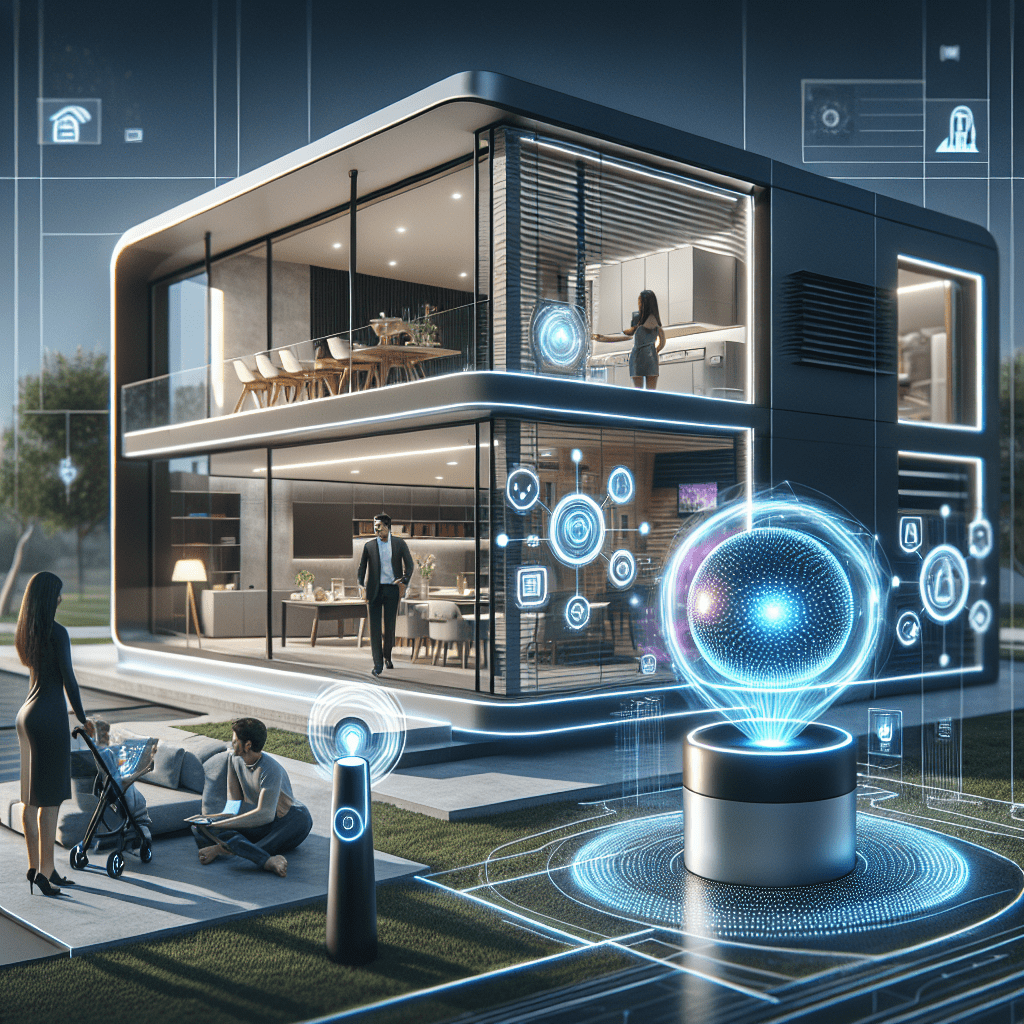In recent years, the rise of smart home technology has revolutionized the way we live. From voice-controlled assistants to automated lighting systems, AI-driven devices have become an integral part of our daily lives. This article explores how AI is shaping the future of smart home technology and transforming the way we interact with our homes.
The Role of AI in Smart Homes
Artificial Intelligence (AI) is at the heart of smart home technology, enabling devices to learn from user behaviors and adapt to their preferences. AI-powered assistants like Amazon Alexa and Google Assistant can recognize voice commands, answer questions, and control connected devices within the home. These assistants utilize machine learning algorithms to improve their functionality over time, making them more personalized and intuitive.
Additionally, AI is used to automate routine tasks in the home, such as adjusting thermostats, turning on lights, and locking doors. By analyzing data from sensors and devices, AI algorithms can anticipate user needs and take action without manual input. This level of automation not only enhances convenience but also improves energy efficiency and security within the home.
The Future of Smart Home Devices
As AI technologies continue to advance, the capabilities of smart home devices are also evolving. The future of smart home technology will likely see more integration between devices, allowing for seamless communication and coordination. For example, a smart thermostat may collaborate with a weather app to adjust temperatures based on upcoming forecasts, or a smart refrigerator may create shopping lists based on food inventory levels.
Moreover, AI-powered devices are becoming more proactive in anticipating user needs and offering suggestions. For example, a smart home system may remind users to water their plants, suggest recipes based on available ingredients, or recommend energy-saving settings to reduce utility bills. By harnessing the power of AI, smart home devices will become more intuitive, adaptable, and personalized to individual preferences.
Enhancing Comfort and Convenience
One of the key benefits of AI-driven smart home technology is its ability to enhance comfort and convenience for users. By automating routine tasks and adjusting settings based on user preferences, smart home devices can create a more personalized and enjoyable living environment. For example, smart lighting systems can adjust brightness and color temperature to match the time of day, while smart thermostats can maintain optimal temperatures throughout the home.
Moreover, AI-powered devices can improve accessibility for individuals with disabilities or mobility limitations. Voice-controlled assistants, for example, enable hands-free interaction with devices, making it easier for users to control their environment. As smart home technology becomes more sophisticated, it has the potential to transform the way we live and improve quality of life for all users.
Conclusion
AI-driven smart home technology is transforming the way we live by enhancing comfort, convenience, and accessibility. With the advancement of AI algorithms and machine learning capabilities, smart home devices are becoming more intuitive, personalized, and proactive in meeting user needs. The future of smart home technology promises to revolutionize the way we interact with our homes, creating a more connected and intelligent living environment.
FAQs
1. How does AI improve energy efficiency in smart homes?
AI algorithms analyze data from sensors and devices to optimize energy usage by adjusting settings based on user behavior and external factors. This proactive approach can reduce utility bills and minimize environmental impact.
2. Are smart home devices secure?
Security is a top priority in smart home technology, and manufacturers implement encryption and authentication protocols to protect user data and prevent unauthorized access. Users can also enhance security by regularly updating firmware and using strong passwords.
3. Can AI-powered devices learn user preferences?
Yes, AI algorithms can learn from user interactions and adapt to preferences over time. By analyzing data patterns and feedback, smart home devices can customize settings and recommendations to suit individual needs.
TIP:
When setting up smart home devices, be sure to configure privacy settings and permissions to protect your personal data and ensure secure operation of the devices. Regularly update firmware and passwords to prevent unauthorized access and keep your smart home network secure.
#Future #Smart #Home #Technology #Transforming #Live
